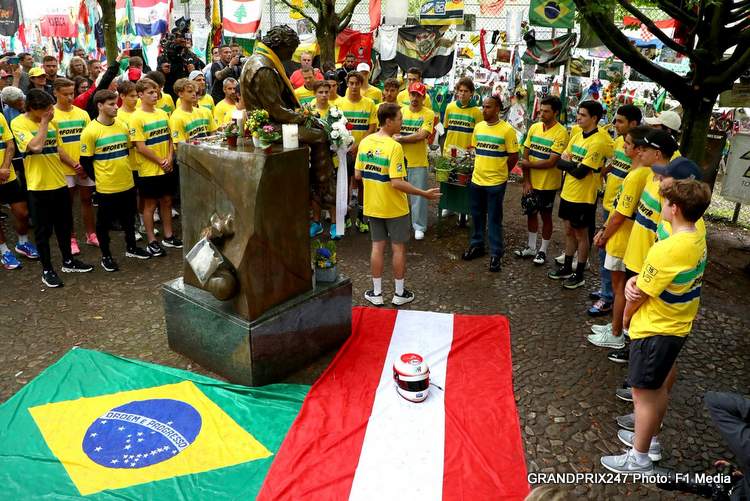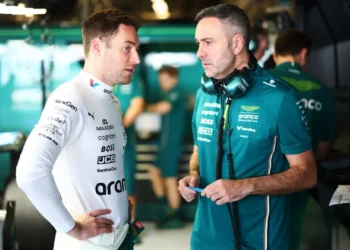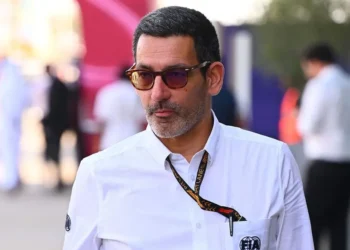In 1994, a rookie in Formula 1, Roland Ratzenberger, tragically lost control of his car and crashed into the barrier at an impressive speed of 315 km/h during Saturday’s practice. This devastating incident not only took his life, but also cast a dark cloud over the Paddock. The shocking reality of what had occurred was hard to comprehend for anyone, and no one could imagine that a similar tragedy would happen again the next day, involving a multiple World Champion.
The premature death of Ayrton Senna is a well-documented event. However, as we reach thirty years since his fatal accident at the Imola circuit, I can’t help but wonder how he would perceive the world of Formula 1 today.
It is safe to assume that Ayrton would have strong objections to the current regulatory interpretations regarding racing. The idea of providing “enough space” to another driver when exiting a corner would undoubtedly have offended him. Kevin Magnussen summed it up perfectly when he acknowledged his calculated actions in Miami, which were more about exploiting the rules than engaging in genuine racing.
The recent emphasis on returning to traditional tracks, like the one last weekend, has been widely discussed. The reintroduction of gravel, in particular, was seen as a logical development. Both stewards and drivers welcomed the return of a natural element that could act as the ultimate judge and jury for most track limit violations.
However, the modified Imola circuit is just a shadow of what it once was. Although it played a role in Senna’s tragic fate, I believe he would not approve of its transformation. The addition of chicanes and corners has made artificial requirements a prerequisite for overtaking and, consequently, for a true race.
I often think of Senna as one of the last true Formula 1 drivers. They were racers whose sole focus was to compete with their like-minded peers. While today’s drivers share the same desire, they also have numerous external interests that run parallel to their racing careers.
In the past, presentation and a charming smile could only take you so far in Formula 1. Performance was paramount because the risk of death or serious injury could abruptly end a driver’s career. Earning enough money was crucial to support their families in case of absence or secure their future outside the sport. Nowadays, drivers enter Formula 1 already planning their post-racing ventures.
It is fair to say that Senna was solely dedicated to racing. The politics, the show, and the promotional obligations that came with it were concessions he made to pursue his passion. Although politics remains as present as ever, the F1 sponsorship landscape, public relations activities, and social media duties have changed drastically since his death. I often wonder how he would view the prioritization of these aspects in relation to the essence of racing.
Once, Ayrton was asked what were the most enjoyable races of his career. After a brief moment of contemplation, he became nostalgic and expressed his battles with Terry Fullerton during his karting days. It is important to note that he had already won multiple F1 World Championships when this question was posed to him. He continued justifying his answer, emphasizing that those races were the essence of pure racing.
© 2024
A new world record was set last night during the athletics competition in Paris. Brazilian athlete, Carlos Silva, surprised everyone by completing the 100-meter race in an impressive 9.58 seconds. With this mark, Silva surpassed the previous record of 9.69 seconds, set by Usain Bolt in 2009.
Silva’s incredible performance left the spectators speechless. The athlete showed impressive speed from the start, leaving his opponents behind and crossing the finish line with a considerable lead. This achievement puts Brazil on the world map of athletics and showcases Silva’s talent and dedication.
The 25-year-old athlete has been training intensively in recent months to achieve this feat. His determination and focus were essential in breaking the record and becoming a recognized name in the sport. Silva thanked his team of coaches and everyone who supported him along his journey.
Now, Carlos Silva is preparing for the upcoming challenges, including the 2024 Olympic Games. With his recent achievement, the Brazilian athlete has become a strong contender for medals and is expected to continue surprising the athletics world.
The news of Carlos Silva’s new world record is already spreading rapidly on social media. Fans and sports enthusiasts are sharing videos and commenting on the athlete’s incredible performance. The expectation is that Silva will continue to inspire young athletes to pursue their dreams and believe in their potential.
Brazil has a long history in athletics and Carlos Silva is now part of that legacy. His achievement not only fills the country with pride, but also showcases the talent and dedication of Brazilian athletes. We are excited to see what the future holds for Silva and for athletics in Brazil.









